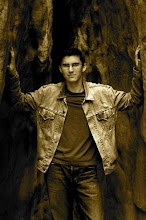
Universal’s horror movies were rich in dark, gloomy Gothic atmosphere and high on suspense and sublimation. Johnston’s remake beautifully recreates that atmosphere, reveling in candlelit, cobwebbed mansions and lonely, foggy moors. It devotes a good deal of time to its sets and costumes, and I was grateful for every shadowy, Gothic-loving moment. However, The Wolfman clearly stumbles with the suspense and sublimation.


What The Wolfman lacks is suspenseful “build up.” Things happen too quickly and when they do, too much is shown. Granted, censorship and technological limitations may explain the “minimal” approach used by classic horror filmmakers, but there’s something to be said for “less-is-more.” The Wolfman ultimately gives into the temptation to “show” rather than “imply,” hindering rather than helping the development of suspense with liberal amounts of blood and gore. It certainly has “jump” scenes, but it never becomes truly scary or horrific.
Ultimately, The Wolfman suffers from too much escalation. For example, in the original Wolfman there’s an implied Freudian conflict between Lawrence Talbot and his father. However, in the new Wolfman, the Oedipal struggle between Lawrence (Benicio Del Toro) and Sir John (Anthony Hopkins) is intensified. There’s nothing necessarily wrong with that, except it results in an unfortunate “papa-werewolf” vs. “junior-werewolf” fight scene that would be more appropriate in Underworld or Van Helsing.


However, this scene (and others like it) may be in the movie simply because moviegoers expect it. Many of The Wolfman's faults are directly related to the audience. Today, people have seen too many werewolf movies. They’ve seen The Wolfman, The Howling, An American Werewolf in London, and yes, even New Moon. Because of that, they have expectations that limit the creative freedom of the filmmakers. Contemporary audiences don’t want to see Lawrence spend a lot of time worrying about whether or not he’s a werewolf. They don’t expect villagers to debate whether or not to riot with pitchforks and torches. They expect a monster movie to feature monsters going at it like professional wrestlers. They expect to see blood and gore instead of discrete fade-outs or off-camera screaming. This means there’s not much room for creating suspense or subtle storytelling.
Maybe that’s why the acting in The Wolfman is also unsatisfying. Benicio Del Toro, Anthony Hopkins, Emily Blunt, and Hugo Weaving are all excellent actors, but they're given little room to act beyond the material given them. Del Toro, for example, clearly tries to stay faithful to Chaney's Lawrence Talbot. While that’s admirable, the result is too subdued and muted. We never feel the agony and dread that Chaney channeled in the original. It feels more like imitation than acting. Emily Blunt’s performance is perfunctory, but she’s ultimately little more than Victorian eye candy. Hugo Weaving is entirely superfluous as the police inspector hunting Lawrence. In another movie, a tense relationship between Lawrence and the inspector could have developed, but not in this movie. Anthony Hopkins is undoubtedly the most interesting character in the story, but I kept feeling that I’ve seen Anthony Hopkins play this role one too many times.
At this point, Universal Studios’ four classic monster movies – Dracula, Frankenstein, The Mummy, and The Wolfman – have all been remade for contemporary audiences. Unfortunately, none of these remakes have really measured up to the originals.
Francis Ford Coppola’s Dracula (1991) worked against its literary roots, trying to transform Bram Stoker’s horror classic into a romance. The results were less than spectacular. Kenneth Branagh’s Frankenstein (1994), on the other hand, attempted a more faithful adaptation of Mary Shelley’s novel by returning the narrative focus to Victor Frankenstein instead of his Monster; however, years of cultural preoccupation with Boris Karloff’s Monster made the transition difficult for audiences to accept. With his Mummy (1999), Stephen Sommers took a completely different approach, giving moviegoers a campy, fun-natured adventure flick that had more in common with Indiana Jones than Boris Karloff.
Of all the remakes, Joe Johnston’s Wolfman is probably the best. I thoroughly enjoyed it. However, I was still less than satisfied with it. It fails to recreate the best qualities of the original. Instead, it actually hinders itself with modern “additions” that ultimately contribute nothing new to the story, making us wonder if a remake was really ever necessary.



No comments:
Post a Comment